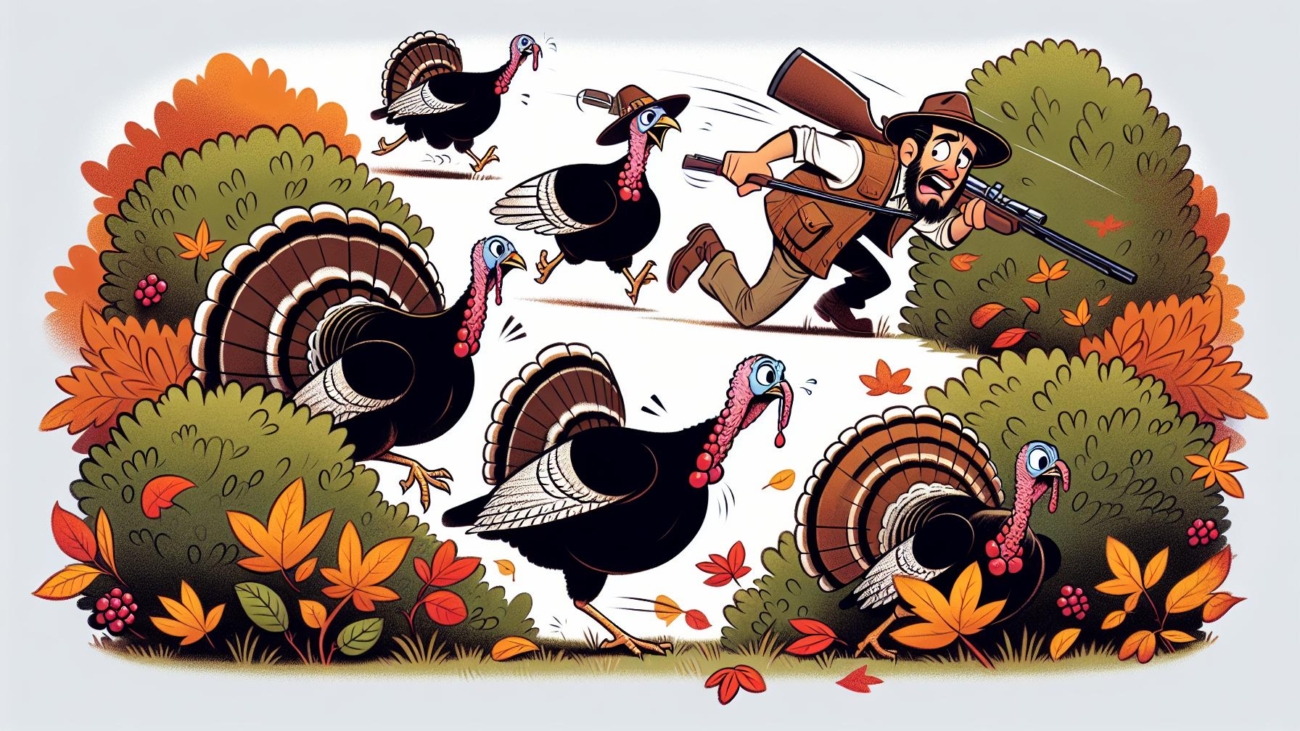The beloved turkey, a staple of Thanksgiving feasts, may soon become a tougher catch, posing challenges for future holiday celebrations. Researchers from the University of Georgia have discovered that if hunting patterns and turkey behavior remain unchanged, it could become increasingly difficult to harvest these birds in the coming years.
Nickolas Gulotta, the study’s lead author and a doctoral student at the University’s Warnell School of Forestry and Natural Resources, emphasizes the need for hunters to adjust their strategies, as turkeys are also changing their behaviors. Gulotta warns that if hunters continue to target turkeys frequenting high-risk areas, these birds may alter their habits, making them harder to spot and catch.
The study reviewed the actions of 109 wild male turkeys in Georgia’s wildlife management areas, focusing on their reactions to both hunters and natural predators. The findings indicated that a turkey’s movement and risk-taking were directly influenced by these threats.
Surprisingly, most of the male turkeys tracked displayed risk-taking behavior, often venturing close to areas frequented by hunters and predators. While this daring conduct benefits hunters, it spells jeopardy for the turkeys. Consequently, Gulotta predicts that future generations of turkeys may learn from their predecessors’ fate and change their habits, challenging hunters to devise new and innovative approaches.
An additional difficulty for the turkeys is the presence of natural predators. Turkeys that steer clear of areas favored by hunters often remain still or hide in high coverage zones. These survival tactics, though successful against hunters, make them an easy target for predators. This creates a Catch-22 for the turkeys: their survival strategies against hunting season exposes them to predators in the off-season.
The study also suggests that individual turkey behaviors can vary, and survival tactics can be passed down generations. This highlights the necessity for hunting strategies to adapt to local conditions, as areas frequently visited by hunters could make turkeys more elusive over time. Failing to do so, Gulotta warns, could impact hunting license sales and overall hunter satisfaction.
The study, published by the Royal Society, was co-authored by Patrick Wightman, Michael Chamberlain of UGA’s Warnell School of Forestry and Natural Resources, and Bret Collier of Louisiana State University.
